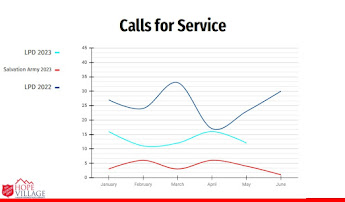By Paige Huffmaster
As many of our residents in Portland become overwhelmed, and ultimately overcome, by the housing crisis, NIMBYism is still at the forefront of the obstacles to affordable housing. NIMBY is an acronym for the phrase “not in my back yard”, and characterizes these residents who fight the attempted solutions to homelessness out of prejudice and fear, typically to boost racism and classism. The consequences of such resistance lead to zone restrictions, public disputes, project cancellations, ect. The Florida Housing Coalition President/CEO, Jaimie Ross, and their Legal Director, Kody Glazer, came up with the following five steps to help combat NIMBYism in relation to affordable housing. Click here to access the full article.
Know your rights
Seeing through the fear of traffic congestion or crowded schools that NIMBYs present for what it is, discrimination. Educate yourself on the local laws and learn about who can help advocate within your community.
Expand legal protections
Especially in Oregon, there are many laws and policies that enable NIMBYism. There are also unique zoning, land, and property hurdles in communities. Advocating for fair process and better policies will help combat NIMBYism.
Educate
Educate your community and local policy makers on affordable housing and what it entails.
Gain support
Gain the following of local agencies, policy makers, advocates, organizations, and the community. Teach them about NIMBYism, and how it's affecting the housing crisis and the homeless population, and why it matters.
Address opposing positions
Make sure to learn the history of concerns and their legitimacy. If they can all be proven to be illegitimate, there is no stance left for NIMBYism to stand. (Ross, Glazer, 2022)
Many organizations have shared other ways to help combat NIMBYism too, like the National Low Income Housing Coalition, Invisible People, and Housing Finance Magazine. Of these resources, a common theme is connection with the community. Allowing people to see what you are building and who will be living there, who they are, will help bridge the connections we need to see past these prejudices and build homes for those who need them. To learn more about the consequences of NIMBYism, consider viewing the book or podcast linked below.
Excluded by housing policy researcher Richar D Kahlenberg https://www.politics-prose.com/book/9781541701465
The David McWilliams Podcast: “Common Law or Common Sense?” https://open.spotify.com/episode/7ksGkqcftQB5J977fmtilT?si=jTEisK4YSSq3dujsfIYuag
Source:
Ross, J., Glazer, K., & Florida Housing Coalition. (2022). The Not in My Backyard Syndrome: Overcoming NIMBY opposition to Affordable housing. In NATIONAL LOW INCOME HOUSING COALITION, NATIONAL LOW INCOME HOUSING COALITION (pp. 2–43). https://nlihc.org/sites/default/files/2022-03/2022AG_2-11_Avoiding-Overcoming.pdf














